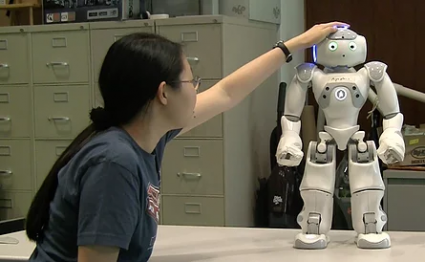
In this episode, our interviewer Lauren Klein speaks with Kim Baraka about his PhD research to enable robots to engage in social interactions, including interactions with children with Autism Spectrum Disorder. Baraka discusses how robots can plan their actions across multiple modalities when interacting with humans, and how models from psychology can inform this process. He also tells us about his passion for dance, and how dance may serve as a testbed for embodied intelligence within Human-Robot Interaction.
Kim Baraka
 Kim Baraka is a postdoctoral researcher in the Socially Intelligent Machines Lab at the University of Texas at Austin, and an upcoming Assistant Professor in the Department of Computer Science at Vrije Universiteit Amsterdam, where he will be part of the Social Artificial Intelligence Group. Baraka recently graduated with a dual PhD in Robotics from Carnegie Mellon University (CMU) in Pittsburgh, USA, and the Instituto Superior Técnico (IST) in Lisbon, Portugal. At CMU, Baraka was part of the Robotics Institute and was advised by Prof. Manuela Veloso. At IST, he was part of the Group on AI for People and Society (GAIPS), and was advised by Prof. Francisco Melo.
Kim Baraka is a postdoctoral researcher in the Socially Intelligent Machines Lab at the University of Texas at Austin, and an upcoming Assistant Professor in the Department of Computer Science at Vrije Universiteit Amsterdam, where he will be part of the Social Artificial Intelligence Group. Baraka recently graduated with a dual PhD in Robotics from Carnegie Mellon University (CMU) in Pittsburgh, USA, and the Instituto Superior Técnico (IST) in Lisbon, Portugal. At CMU, Baraka was part of the Robotics Institute and was advised by Prof. Manuela Veloso. At IST, he was part of the Group on AI for People and Society (GAIPS), and was advised by Prof. Francisco Melo.
Dr. Baraka’s research focuses on computational methods that inform artificial intelligence within Human-Robot Interaction. He develops approaches for knowledge transfer between humans and robots in order to support mutual and beneficial relationships between the robot and human. Specifically, he has conducted research in assistive interactions where the robot or human helps their partner to achieve a goal, and in teaching interactions. Baraka is also a contemporary dancer, with an interest in leveraging lessons from dance to inform advances in robotics, or vice versa.
- Download mp3 (13.7 MB)
- Subscribe to Robohub using iTunes, RSS, or Spotify
- Support us on Patreon
PS. If you enjoy listening to experts in robotics and asking them questions, we recommend that you check out Talking Robotics. They have a virtual seminar on Dec 11 where they will be discussing how to conduct remote research for Human-Robot Interaction; something that is very relevant to researchers working from home due to COVID-19.
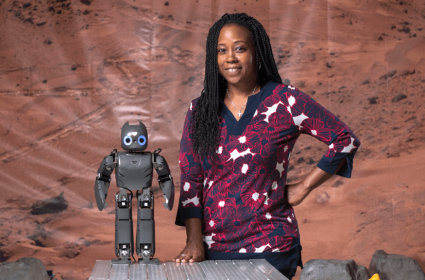
 Ayanna Howard is a Professor and Chair of the School of Interactive Computing at Georgia Tech. Professor Howard is the director and founder of the Human-Automation Systems (HumAnS) Laboratory. Her research focuses on humanized intelligence, with a wide range of applications from Human-Robot Interaction to science-driven robotics. Prior to Georgia Tech, she led research projects at NASA’s Jet Propulsion Laboratory. Professor Howard is also a founder and the CTO of the educational robotics company Zyrobotics.
Ayanna Howard is a Professor and Chair of the School of Interactive Computing at Georgia Tech. Professor Howard is the director and founder of the Human-Automation Systems (HumAnS) Laboratory. Her research focuses on humanized intelligence, with a wide range of applications from Human-Robot Interaction to science-driven robotics. Prior to Georgia Tech, she led research projects at NASA’s Jet Propulsion Laboratory. Professor Howard is also a founder and the CTO of the educational robotics company Zyrobotics.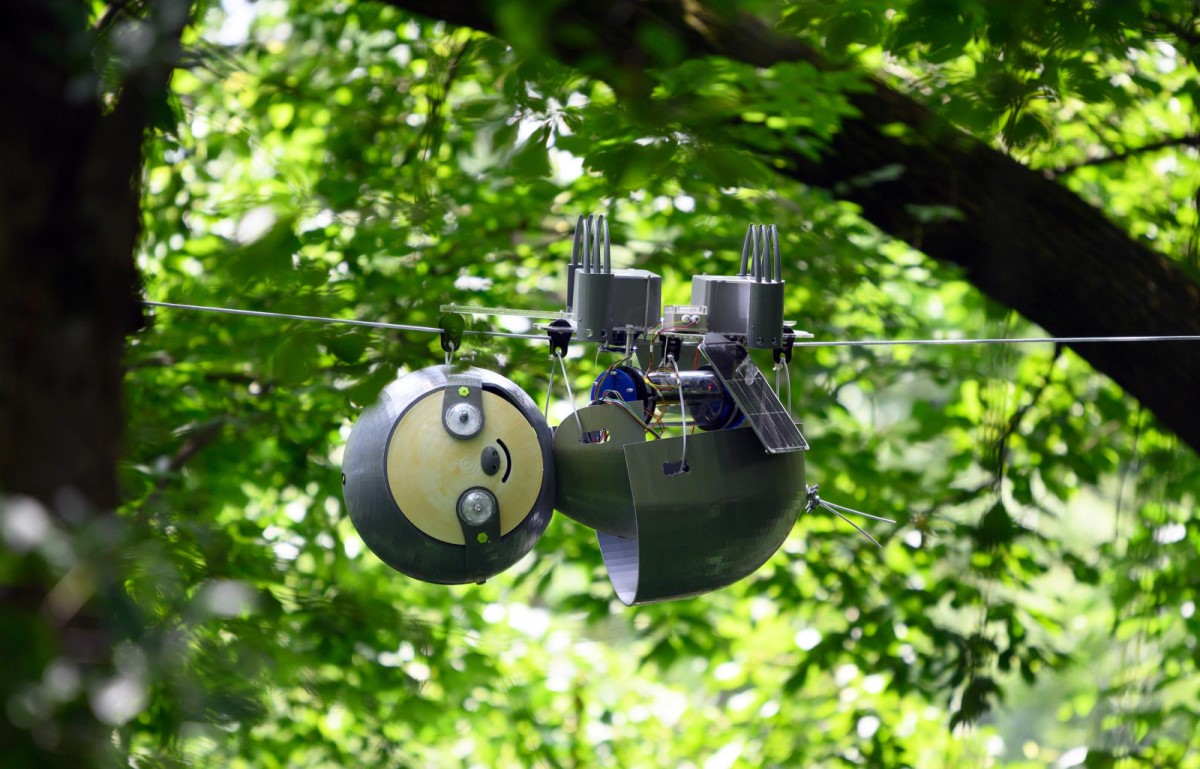
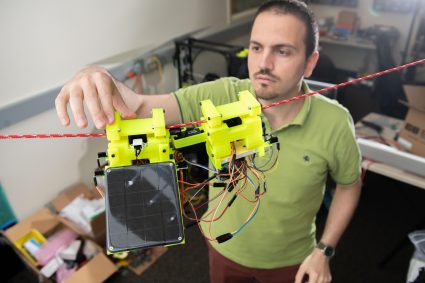


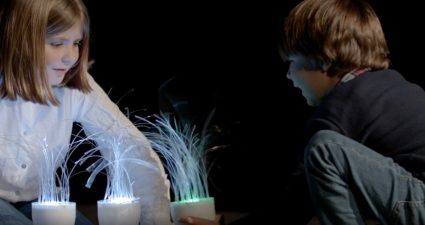
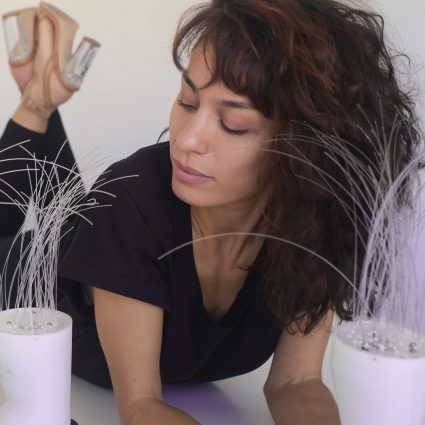 Patrícia Alves-Oliveira is an upcoming postdoctoral researcher working with Professor Maya Cakmak in the Human-Centered Robotics Lab at the University of Washington. She recently completed her PhD in Human-Robot Interaction at the Lisbon University Institute supervised by Profs. Ana Paiva and Patrícia Arriaga, also working as a visiting scholar in the Human-Robot Collaboration and Companionship Laboratory at Cornell University, supervised by Professor Guy Hoffman. Patrícia’s research focuses on the use of social robots as intervention tools to enrich creative behaviors in children. Patrícia’s overarching goal as a Human-Robot Interaction researcher is to investigate how and where robots can be used to empower innate human qualities and experiences.
Patrícia Alves-Oliveira is an upcoming postdoctoral researcher working with Professor Maya Cakmak in the Human-Centered Robotics Lab at the University of Washington. She recently completed her PhD in Human-Robot Interaction at the Lisbon University Institute supervised by Profs. Ana Paiva and Patrícia Arriaga, also working as a visiting scholar in the Human-Robot Collaboration and Companionship Laboratory at Cornell University, supervised by Professor Guy Hoffman. Patrícia’s research focuses on the use of social robots as intervention tools to enrich creative behaviors in children. Patrícia’s overarching goal as a Human-Robot Interaction researcher is to investigate how and where robots can be used to empower innate human qualities and experiences.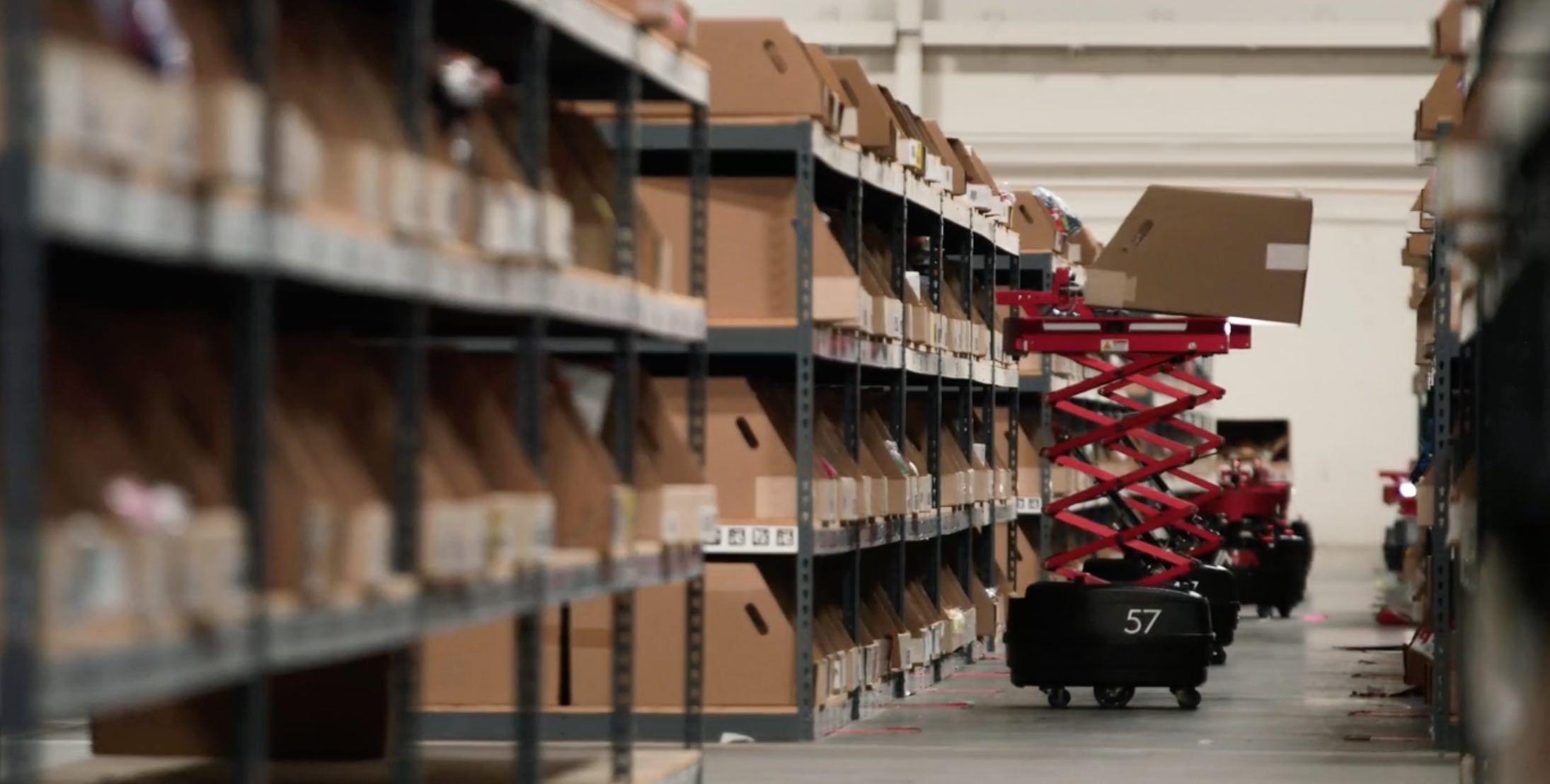
 Rand Voorhies is the CTO and a founder of inVia Robotics, where he leads the engineering team in developing the software which drives their system of autonomous robots. Voorhies received his PhD in computer science from the University of Southern California, where he conducted robotics research with NASA’s Jet Propulsion Laboratory.
Rand Voorhies is the CTO and a founder of inVia Robotics, where he leads the engineering team in developing the software which drives their system of autonomous robots. Voorhies received his PhD in computer science from the University of Southern California, where he conducted robotics research with NASA’s Jet Propulsion Laboratory.
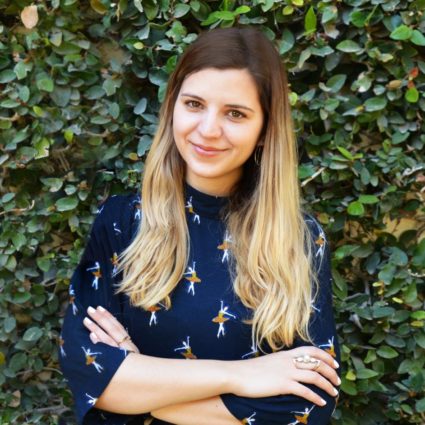 Michal Luria is a PhD candidate in the Human-Computer Interaction Institute at Carnegie Mellon University, advised by Professors Jodi Forlizzi and John Zimmerman. Michal’s research centers on exploring alternative ways for humans to interact with agents and social robots. Prior to her PhD, Michal studied Interactive Communication at the Interdisciplinary Center Herzliya in Israel.
Michal Luria is a PhD candidate in the Human-Computer Interaction Institute at Carnegie Mellon University, advised by Professors Jodi Forlizzi and John Zimmerman. Michal’s research centers on exploring alternative ways for humans to interact with agents and social robots. Prior to her PhD, Michal studied Interactive Communication at the Interdisciplinary Center Herzliya in Israel.


